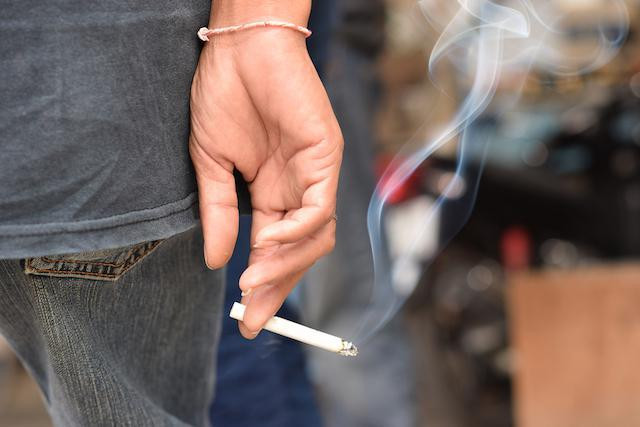The Commission on Wednesday published its Beating Cancer Plan that includes initiatives to boost prevention, early detection, diagnosis and treatment, and improve the quality of life for patients and survivors.
Among its ambitions, the plan wants to “create a ‘Tobacco Free Generation’” as well as “reducing harmful alcohol consumption” by reviewing taxation directives and the legal frameworks of cross-border purchases.
The grand duchy benefits from charging lower prices on these products than its neighbours, with service stations dotted along its borders generating around €2bn in VAT and excise tax income for the state from petrol, alcohol and tobacco sales. But with the EU’s cancer plan this could change.
More than a quarter of cancer deaths in Europe are caused by tobacco, according to the World Health Organization, which also estimates that 90% of lung cancers could be avoided by eliminating tobacco use.
By 2040, the European Commission wants fewer than 5% of the population to use tobacco, compared to around 25% today. “Tobacco taxation is one of the most effective instruments to fight tobacco consumption, particularly in deterring young people from taking up smoking,” it said in its plan, promising “decisive action.”
Health minister Paulette Lenert (LSAP) in September 2020 said the government was planning to increase prices on tobacco products but did not indicate a timeline. She is set to hold a press conference to present a national cancer report on 4 February to mark World Cancer Day.
Luxembourg’s Fondation Cancer in a report said that the number of smokers in the grand duchy had actually increased over the last decade. While it hovered between 20 to 24% between 2010 and 2018, it reached 27% in 2019.
In January, the foundation had launched a buddy programme to motivate people to participate in an alcohol-free month, with drinking the second-highest risk factor for developing cancer, especially breast, liver, oral cavity, esophageal, throat and colon cancer.
With the goal of reducing the harmful consumption of alcohol by at least 10% by 2025, the Commission in its plan said it would “review EU legislation on the taxation of alcohol and on cross-border purchases of alcohol by private individuals, ensuring that it remains fit for purpose to balance the objectives of public revenue and health protection.”
Around 1,000 people a year die of cancer in Luxembourg, accounting for roughly a quarter of all deaths. There are around 3,000 new cancer diagnoses annually.
